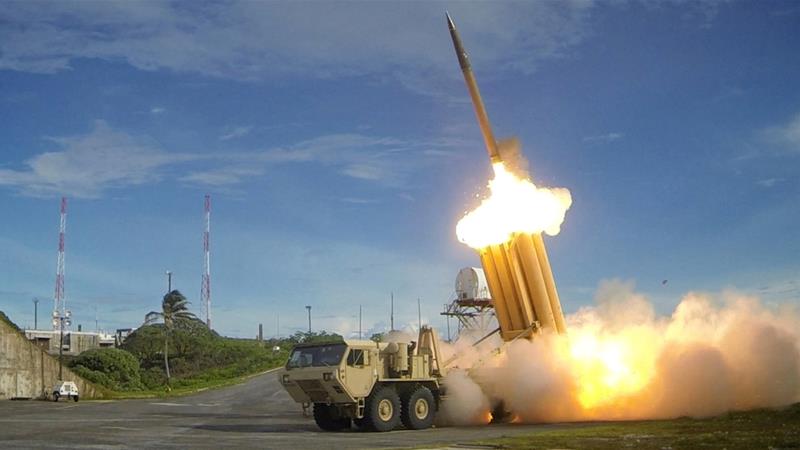Jura The idiot
General
LOL now noticed a good question Is Political Leverage, Not Capability, Behind Qatar Fighter Orders?
Sep 21, 2017
Sep 21, 2017
Qatar’s plans to purchase up to 24 Typhoon fighters will be a welcome boost for the four-nation consortium.
But there are questions about how Doha’s tiny air force will be able to absorb the massive capabilities in which it is investing.
Qatar, the richest country in the world as measured by GDP per capita, thanks to its vast natural gas and oil reserves, has already ordered 24 from France. Several already are flying, and the country also has signed up to purchase 36 advanced versions of the Eagle from the U.S. in a similar configuration to those being introduced by neighboring Saudi Arabia.
The plan to purchase , which emerged as Qatar and the UK signed a new defense pact on Sept. 17, will boost Qatar’s planned fighter fleet to 84 aircraft, seven times larger than the Dassault Mirage 2000 fleet it will ultimately replace.
Such growth in airpower capability and capacity is virtually unprecedented in recent times, and historians would likely have to look back to the outbreak of World Wars I and II to see such rapid fleet growth.
But these big-ticket orders are more about political leverage and not necessarily capability.
Doha needs its Western allies more than ever. The country has become isolated from its neighbors in a spat over Qatar’s alleged support, funding and hosting of terror groups.
The airspace of Bahrain, Egypt, Saudi Arabia and the UAE has been closed to Qatari aircraft since early June, and the quarrel shows no sign of abating.
Some pundits point out that choosing three aircraft types is a savvy move, giving Qatar relationships with three suppliers rather than just one—a possible useful asset when geopolitical winds change.
And after all, when you are the richest nation in the world, the need for economies of scale goes out the window.
Despite all that, the wider view is that absorbing all three aircraft types into the tiny Qatar Emiri Air Force (QEAF) likely will be a challenge, regardless of how much money the Gulf nation throws at its problems.
The three aircraft types share little in common; they bring complex infrastructure and supply chain issues, not to mention three different weapon sets—although there will be some commonality between the Rafale and Typhoon.
“There are no benefits from operating these three advanced fighter types together that could outweigh the huge increases in support costs and complexity, compared to a unified fleet of one of them,” says Justin Bronk, a research fellow for aerospace and technology at the London-based Royal United Services Institute think tank.
Bronk says the Qataris probably will struggle to staff or properly support a front-line fighter fleet of that size without an enormous expansion of the entire air force.
“These are prestige purchases and will spend most of their operational lives idle on the tarmac,” he notes.
There is certainly no shortage of space—the huge Al Udeid Air Base, home to a significant U.S. Air Force presence, already has many shelters and dispersals ready to house the new fighters.
What the QEAF does lack, however, is manpower. According to the International Institute for Strategic Studies’ Military Balance publication, the Air Force has just 1,500 personnel. With growth from Qatar’s indigenous population unlikely, the country will need to recruit from overseas.
There is already evidence that Qatar has started hunting far and wide to boost its manpower. In 2015, Qatar plundered the training instructors from Croatia’s Wings of Storm display team so it could establish its own.
Qatar has been working to expand its organic training capability. In 2012, Doha ordered a fleet of 24 turboprop trainers from Switzerland, and this July it began taking delivery of Pakistan Aeronautical Complex Super Mushshak basic training aircraft.
Other air forces in the region already make extensive use of expatriate personnel, and Qatar will likely do the same as well as lean heavily on the nations supplying the new fighters for training and support.
The deal with Qatar is clearly a significant boost to the Typhoon program and comes after Kuwait’s order for 28 aircraft signed in April 2016, which helped push Typhoon production out until 2023. A contract from Qatar could push this out to the mid-2020s.
While there had been rumblings of a potential deal with Qatar for several years, the timing took many in industry by surprise, with no hints of a signing at the Defense and Security Equipment International (DSEI) conference in London on Sept. 12.
But industry is still waiting on Qatari confirmation of several other big-ticket projects.
In 2014, Doha laid out a wish list of new capabilities, including tankers and utility helicopters from Europe, as well as -based airborne early warning platforms and a plethora of air defense systems. However, only a handful of the proposed purchases have proceeded.

